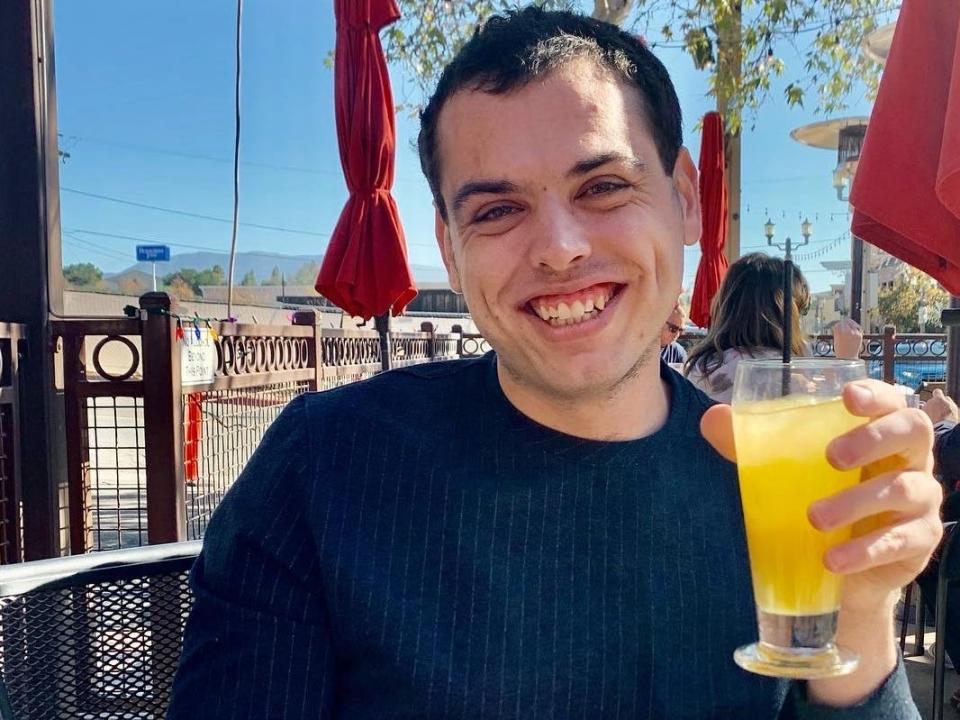I'm gay and autistic. It took me years to understand what I needed in sex and relationships.

Ian Donley is a gay and autistic man.
In college, he had a lot of casual sex with men because physical touch was important to him.
Now he says that while sex gives him a needed rush, he wants something emotionally meaningful.
I'm autistic, and most people I meet, especially on dates, don't understand what that means.
They point to TV shows like "Atypical" and "The Good Doctor" or to the "socially awkward kid" your parents forced you to befriend. That's not me.
As an autistic person, I've been able to "mask" as neurotypical — somebody who doesn't have atypical patterns of thoughts or behaviors. But as I've gotten older, I proudly lean into my intersectional identity as a gay and autistic man — even though I have special intricacies, like needing foreplay when it comes to dating and sex.
When I went to college, I started experimenting with my sexuality
As a gay man from Temecula, a conservative small town in California, I had very slim options: the other 18-year-old guy who respectfully declined to date me or the 50-year-old married man with two kids under the age of 6.
I ended up losing my virginity during my first few months of college, with a guy from Grindr who had more experience than me, which made me feel relaxed. It was also amazing, exhilarating, and euphoric.
It felt good to finally give that to myself. The shame I felt toward my sexual orientation disappeared. It felt like I finally became an adult. My sex life took off from there.
But the majority of my experiences were one-night stands with guys from Grindr, and the couple of regulars I did have were interested only in a minimalist relationship. I knew very little about them, and vice versa. Most of my interactions with them started with, "Hey, what's up," and ended with me putting my clothes on and walking home without anyone noticing.
In retrospect, it's clear that my need for physical touch was what drove me to it. It made me feel connected not to only my partners but also, most importantly, myself.
Through my sexual encounters in college, I learned more about my autistic identity during sex
As part of my autism, I have a dopamine deficiency, which means I crave high amounts of dopamine. Dopamine is a neurotransmitter, a substance made in your brain. Basically, it makes you feel good.
Of course, each autistic person is different. But that's what drove me to have casual sex in college — the chase of dopamine. The physical touch during foreplay is what makes me feel great and activates high levels of dopamine in me. In my experience, a lot of men ignore this part of sex, but foreplay is essential for me. It breaks down some of my walls and helps me feel comfortable. They say slow and steady wins the race, and I believe that applies to sex.
I've been with guys who disregard my feelings about it, and it makes it difficult for me to enjoy any other part of the sexual encounter.
When I talk about foreplay, I'm not necessarily talking about sexual acts. I like a man who will embrace any form of physical touch. I enjoy hugs a lot. I grew up being hesitant about showing any kind of physical affection toward men but have realized that it is not only OK to be affectionate but also important.
Now, as a 24-year-old, my criteria for what I look for in a partner have changed
While sex is fun, a good way to connect with people, and a means to satisfy my craving for touch and dopamine, it doesn't completely fulfill me. As I got older, sex became mechanical to me because I started losing my value as a person. I was honoring my sensory cravings but not my emotional ones.
I allowed myself to have casual sex, thinking I would find the right guy for me, but, ultimately, I was hurting myself emotionally. I've built more restraint in terms of whom I give my body to. The most important factor is finding a partner who will respect my intricacies as an autistic person but will also fulfill me emotionally — not just physically.
Read the original article on Business Insider

